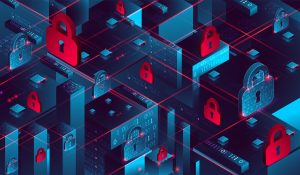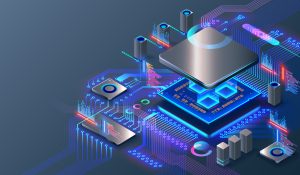
by Yuhao Zhu on Jul 6, 2021 | Tags: Accelerators, deep learning, gpu, ray tracing, rendering
In Part I of this mini-series, we looked at recent advances in hardware support for ray tracing and how we might ride this wave to think more broadly about general-purpose irregular computing. Part II looks at another rising trend in graphics, i.e., the confluence of...
Read more...

by Yuhao Zhu on Jul 1, 2021 | Tags: Accelerators, gpu, graphics, ray tracing, rendering
Introduction Computer graphics exemplifies hardware-software co-design. Since its inception, rendering algorithms have been developed hand in hand with hardware architecture. Graphics is only becoming more important with the rise of new visual applications such as...
Read more...

by Adrian Sampson on Jun 29, 2021 | Tags: Accelerators, Programmability, Programming Languages
We need to make it easier to design custom, application-specific hardware accelerators. The potential efficiency gains are enormous, and the cost of deploying accelerators is falling rapidly with the widespread availability of FPGA cards and the increasing...
Read more...

by Khari Douglas on Jun 25, 2021 | Tags: Accelerators, Interview, Machine Learning, Modelling, Policy
[Editor’s Note: This article originally appeared on the CCC blog (part 1 and part 2) and is re-posted here with permission.] A new episode of the Computing Community Consortium‘s (CCC) official podcast, Catalyzing Computing, is now available. In this episode, Khari...
Read more...

by Dmitry Ponomarev on Jun 23, 2021 | Tags: Conference, Security
Hardware and architecture security remained a hot research topic in the first half of 2021, with new contributions appearing in architecture, security and systems conferences. Some of these 2021 papers were overviewed in our earlier blog post, here we focus on more...
Read more...

by Cliff Young on Jun 15, 2021 | Tags: Hardware, history
This is the second part of my “Brief and Biased History of Computer Architecture”; you can find the first part here. While IBM rules the 1960s and the 360/91 might be considered the first supercomputer1My definition of a supercomputer is a system that prioritizes...
Read more...

by Cliff Young on Jun 10, 2021 | Tags: Hardware, history
I’ve always envied my Physics colleagues, because their field has a history rich with heroes and epic stories1I have other reasons for Physics envy—it’s the hardest of the “hard sciences”, one step away from the pure rigor of Mathematics. I worry that CS needs...
Read more...

by Mingyu Gao on Jun 7, 2021 | Tags: Accelerators, Cryptography, MPC, Security
Big Data and artificial intelligence have empowered the data-driven computing paradigm, in which data become the most precious resources. Specifically, if one could make use of data not only of herself, but also from other sources to constitute larger datasets, it...
Read more...

by The Computer Architecture Student Association (CASA) on Jun 4, 2021 | Tags: Academia, CASA, Community, Diversity
Across the computer systems and architecture community there has been A Call to Action to advance and promote diversity, equity, and inclusion (DEI) values through systemic change. Towards this step, HPCA 2021, PPoPP 2021, CGO 2021, and CC 2021 held a joint session...
Read more...

by Natalie Enright Jerger on Jun 2, 2021 | Tags: Accelerators, Emerging Technology, networks-on-chip
Twenty years ago research into networks-on-chip (NoCs) was launched with the publication of the foundational Dally and Towles paper, “Route Packets not Wires,” in the Design Automation Conference (DAC) in June 2001. In this blog post, I explore the evolution of...
Read more...












